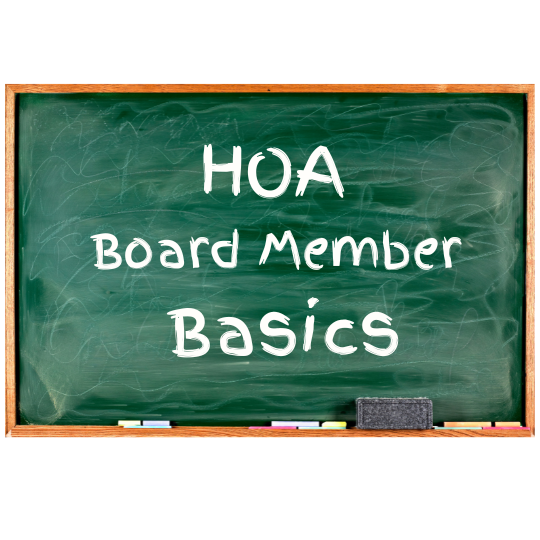School is in Session – Does Your Board Need Education?
As a board member and/or homeowner, you have an incredible opportunity to make a difference in your community. But your role as a leader is only as effective as the knowledge you bring to the table. While there are no guarantees that your neighbors will agree with each decision made by their HOA Board, keeping members well-informed can go a long way toward making sure everyone is on the same page about what’s best for their neighborhood.
Board members should have a clear understanding of their roles and responsibilities, and be fully aware of the policies that govern their behaviors.
If your board is not well informed, a lack of communication and trust can become a major issue. They should know how to access information related to owners, such as bylaws, financial statements, and minutes from meetings. They should also understand how to communicate with management in order to get answers about issues that may arise during the course of their term on the board.
Board members should fully understand the workings and implications of the various governing documents used to operate the community association.
The governing documents of your community association are important. They determine how your association is run, what responsibilities you have as a board member, and if there are any consequences for not following them. If you’re not sure how many governing documents exist in your community association or what their differences are, it’s time for some education.
There are essentially three types of governing documents: the declaration, the bylaws, and policies. The declaration specifies the duties and obligations of both the owners within the community and the community association itself. The declaration will also lay out provisions related to the collection of assessments, use restrictions, insurance, and sometimes, architectural guidelines. The bylaws dictate exactly how a community should operate under specific circumstances – for example, how meetings should be conducted and what type of notification must take place before making any major changes to existing rules/regulations/policy decisions (e.g., buying new playground equipment). Finally, the policies work in conjunction with the other governing documents by clarifying positions, policies, and procedures of the board (such as the collection of assessments, covenant enforcement, the conduct of meetings, pets, parking, etc.).
Board members need to fully understand the fiduciary duties associated with their role as board member.
For a board to be effective, it must have members with knowledge and understanding of their fiduciary duties. The specific requirements are:
-
Duty of care
-
Duty of loyalty
-
Duty to act in good faith
-
Duty to act with due care
-
Duty to avoid conflicts of interest or situations where there may be a conflict between the interests of the organization and one’s own private interests or those of others. This includes abstaining from voting on matters where there is a conflict between one’s own private interests or those of others and the best interests of the organization.
Attend workshops and seminars for board members; you will learn important information that will help you manage your association more effectively, as well as gain a better appreciation for what your neighbors want from their HOA.
Attend workshops and seminars for board members; you will learn important information that will help you manage your association more effectively, as well as gain a better appreciation for what your neighbors want from their HOA.
The board may also consider the value of attending professional development seminars and workshops. This can include attending trade shows, conferences, and training sessions. External professional advisors, including managers, attorneys, and accountants, can also provide valuable training.
Keeping a board educated is key to community success!
A board that is not educated is a board that cannot lead the community. Keeping your board educated is essential to creating a successful community.
As a board member, you are responsible for ensuring that your community runs smoothly and is well-managed. This requires knowledge of the legal documents that govern your HOA, as well as the proper understanding of how these documents work together to establish an effective operational framework. Your organization may also benefit from external professional advisors who can provide valuable training on topics such as governance and management, or even specific areas like accounting or finance if necessary. In addition, there are many opportunities available for board members to gain knowledge by attending workshops and seminars about various aspects of community association management, such as financial literacy or leadership skills development programs
In conclusion: If you’re looking to build your board’s educational foundation in order to be more successful in running your community, then contact our office today. We provide training and education on all matters affecting community associations, covering everything from legal updates to risk management topics like cyber security so there’s something perfect for every group size and interest!

